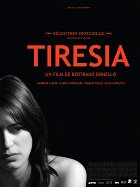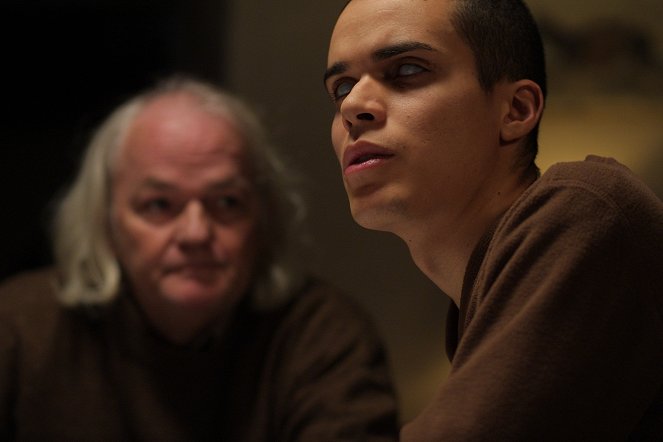Director:
Bertrand BonelloReparto:
Lou Castel, Alex Descas, Laurent Lucas, Olivier Torres, Fred Ulysse, Marcelo Novais Teles, Thiago Telès, Célia Catalifo, Clara ChoveauxSinopsis(1)
French drama, based on the Greek myth of Tiresias, who was both male and female at the same time. Played by Clara Choveaux, Tiresia is a young Brazilian transsexual living in a rough neighbourhood on the outskirts of Paris. Refined aesthete Terranova (Laurent Lucas) becomes obsessed with Tiresia and kidnaps her, dragging her off to the country. However, removed from her regular supply of hormones, Tiresia gradually begins to change back into a man (where he is played by Thiago Telès). Terranova becomes disgusted with him, and in his rage cuts the boy's eyes out. Blinded, Tiresia wanders the countryside until he is found by Anna (Célia Catalifo), a young girl who decides to take care of him. (Tartan Video)
(más)Reseñas (2)
Un espresso académico francés con una historia interesante y un diálogo irónico. A pesar de la tristeza y la crueldad de la historia, los cineastas son típicamente «artísticos» en sus emociones, y la naturaleza dramática de la película se expresa a través del simbolismo: la música de Bach con tomas de lava fluyendo. Un producto de festival para círculos cerrados. Para mí está bien, pero paso de las preguntas y respuestas a los creadores.
()
I wanted to build on Lacan’s idea that the phallic signifier is also a symbol of desire, and furthermore, due to the fundamental impossibility of attaining desire, it actually represents the missing phallus, which does not mean it is completely absent. It is possible (and necessary) to represent it but in a veiled, hidden way. In "Écrits," Lacan writes that a woman who would attach an artificial penis under her clothes would arouse desire in all men. But what if that woman does not have to attach anything? The first half of the film directly invites psychoanalytic speculation, but the second half is fundamentally different and elevates the whole film to the realm of an updated ancient (see the mythological theme) allegory. Within this framework, we no longer move in the spheres of the mundane human psyche but in the spheres "between heaven and earth," which subverts the meaning of the previous half to a considerable extent. However, only to a considerable extent, because Bonello ultimately manages to connect both parts through the screenplay. It is definitely a thought-provoking film: besides describing the relationship between a person and what both attracts and endangers them existentially and identity-wise, in both the first and second halves where the male character is always exposed to the danger of losing his life (1st man) or livelihood (the priest to whom the oracle is a rival) and the loss of certainty about their own/possibly conformingly heterosexual, etc. / self, the film also poses an unsettling thesis for a white heterosexual European. After all, the carrier of a deeper relationship with the world and other people is the transsexual prostitute, who is also an illegal immigrant from a developing country!
()


Anuncio